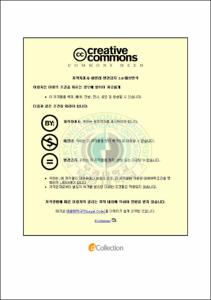부산지역 병원 급식과 영양 상담에 대한 치료식 환자의 인식도
- Alternative Title
- Patients' perception of therapeutic-diet on foodservice and nutrition counseling at hospitals in Busan
- Abstract
- The purpose of this research was to investigate in-patients' perception of therapeutic-diet on foodservice and nutrition counseling at hospitals. Four general hospitals with over 400 beds and one university hospitals with over 800 beds in Busan agree to participate in research. The data were collected by an 1:1 interview questionnaires. In study, 155 in patients of the hospitals were serveyed on their perception on foodservice and nutrition counseling. For statistical analysis of the data, reliability analysis descriptive statistics analysis, t-test, oneway ANOVA, Chi-squre and Pearsons' correlation were conducted using SPSS win 10.0. This survey was conducted from January 21st to the February 28th, 2008.
The results are summarized at follows ;
1. In the survey, 75.2% of the patients have experienced to listen to the reason for taking therapeutic-diet. Dietitians happened to be not only the most frequent presenter of therapeutic-diet(61.7%), but also the most requested from patients(59.4%). In perception of therapeutic-diet explanation(understanding, importance, satisfaction, and degree of help to nutrition-manage), there was not a significantly difference among each categories such as gender, age, educational level, number of hospitalization, length of stay, wards, status of appetite, and degree of pain.
2. The foodservice satisfaction of patients' age 51 to 59 marked a high rate(p<0.05), and the patients showing good appetite marked the highest, compared to any other group(p<0.001). However, there were no significant differences to the scores of satisfaction by gender, educational level, number of hospitalization, wards, and length of stay.
3. For perception of understanding therapeutic-diet, patients who are served with a manual and an explanation had high satisfaction(p<0.01) with ‘taste’, ‘appearance’, ‘variety of diet’, ‘meeting opportunity with dietitians’ and also with ‘seasoning’, ‘prompt dealing with meal complaints’(p<0.05).
4. The score of satisfaction of the foodservice had high scores on understanding and importance of the therapeutic-diet explanation but there were no significant differences. The patients that had a high rate in satisfaction, and degree of helps to nutrition-manage showed significantly(p<0.05) higher scores in foodservice satisfaction.
5. It appears to have a positive correlation(p<0.05) between therapeutic-diet explanation(understanding, importance, satisfaction, and degree of helps to nutrition-manage) and foodservice satisfaction(menu, foodservice).
6. In the survey, 57.5% of the patients experienced nutrition counseling, and for the reason, 64.1% of them was recommended it by doctors, meaning that doctors has mainly counselled the nutrition counseling. In addition, it showed that a method of the nutrition counseling was 58.0% of a private training and the usually had it once to 54.5%.
7. The study shows a significantly difference of nutrition counseling perception(understanding, importance, satisfaction, and degree of help to nutrition-manage) in ‘number of hospitalization’(p<0.05), and ‘status of appetite’(p<0.01). But there were no significant differences on gender, age, and educational level.
8. It demonstrates that not only the patients who had a good appetite rated a high score of 4.05/5.00 (p<0.01), but also the patients which were not in seriously pain showed high satisfaction in the nutrition counseling with 4.13/5.00 (p<0.05). On the contrary, there were no significant differences to the scores of satisfaction of the nutrition counseling (knowledge, cognitive communication skills, affactive communication skills, facilitation skills) by gender, educational level, period and experience of hospitalization and wards.
9. There were no significant differences to the scores of nutrition counseling satisfaction on 'method of counseling', 'number of counseling', and 'reason of counseling'. The patients that had a high rate in understanding(p<0.001), importance(p<0.01), and degree of help in nutrition-manage(p<0.001) showed a significantly higher scores in nutrition counseling satisfaction.
10. The study shows a positive effect between perception of nutrition counseling and nutrition counseling satisfaction(p<0.01)
11. The score of positive correlation had significantly high scores (p<0.01) on satisfaction of nutrition counseling('knowledge', 'affactive communication skills', ' facilitation skills')and that of the foodservice(menu, foodservice). And also there were high scores(p<0.05) of positive correlation between 'cognitive communication skills' and 'foodservice factor'.
- Issued Date
- 2008
- Awarded Date
- 2008. 8
- Type
- Dissertation
- Publisher
- 부경대학교 일반대학원
- Alternative Author(s)
- Yi, Jeong-Ryeh
- Affiliation
- 부경대학교 일반대학원
- Department
- 대학원 식품생명과학과
- Advisor
- 류은순
- Table Of Contents
- Ⅰ. 서론 = 1
1. 연구의 필요성 = 1
2. 연구의 목적을 위한 가설 설정 = 6
Ⅱ. 이론적 배경 = 8
1. 치료식 만족 = 8
가. 병원급식 서비스의 품질 = 8
나. 병원급식에 대한 환자 만족도 = 10
다. 치료식 설명 = 12
2. 영양상담의 필요성 = 13
Ⅲ. 연구방법 = 17
1. 연구대상 및 방법 = 17
가. 연구대상 = 17
나. 연구방법 = 18
2. 연구 기간 = 18
3. 조사 도구 = 18
가. 부산지역 병원의 치료식과 영양상담 운영현황 = 18
나. 치료식 환자에 대한 조사도구 = 19
(1) 인구사회학적인 특징 = 19
(2) 치료식 설명에 대한 내용 = 20
(3) 병원 급식에 대한 만족도 = 20
(4) 영양상담의 도구 = 20
4. 문항에 대한 신뢰성 검증 = 23
5. 자료분석 = 25
Ⅳ. 연구 결과 = 27
1. 부산 지역 병원의 치료식과 영양상담 운영 현황 = 27
2. 치료식 환자의 일반적 특성 = 31
3. 치료식 설명에 대한 견해 = 34
4. 병원급식에 대한 만족도 = 42
5. 치료식 환자의 영양상담에 대한 견해 = 57
6. 영양상담에 대한 만족도 = 66
7. 영양상담 만족도와 병원급식만족도의 상관관계 = 81
Ⅴ. 요약 및 결론 = 83
Ⅵ. 참고문헌 = 88
Ⅶ. 부록 = 95
- Degree
- Master
- Files in This Item:
-
-
Download
 부산지역 병원 급식과 영양 상담에 대한 치료식 환자의 인식도.pdf
기타 데이터 / 1.28 MB / Adobe PDF
부산지역 병원 급식과 영양 상담에 대한 치료식 환자의 인식도.pdf
기타 데이터 / 1.28 MB / Adobe PDF
-
Items in Repository are protected by copyright, with all rights reserved, unless otherwise indicated.